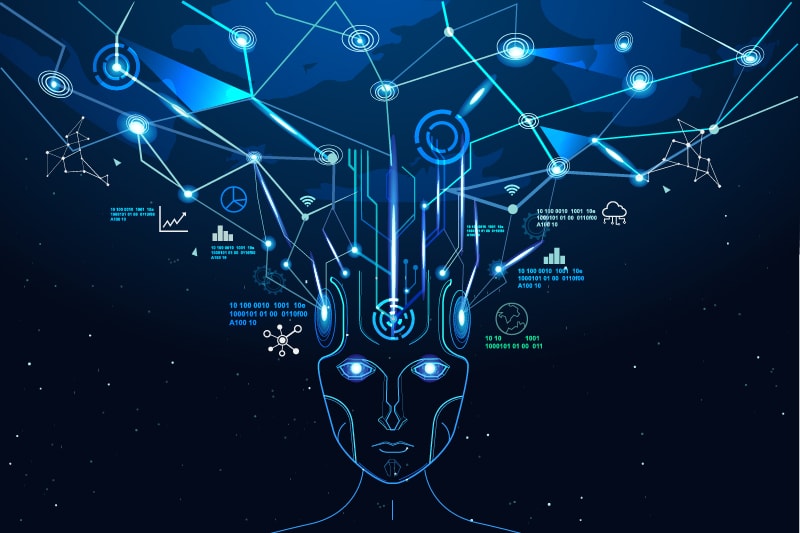AI & the Law: A Nexis Exec’s Perspective

Just over one year after Open AI’s ChatGPT launched, artificial intelligence is transforming workplaces everywhere – including law firms.

To London-based expert Ian McDougall, executive vice president and general counsel for LexisNexis’ Legal & Professional Division and president of its Rule of Law Foundation, artificial intelligence (A.I.) is poised to have a transformative impact on how lawyers work – but it will not likely replace them.
Law Professor Luz Nagle recently hosted McDougall for an afternoon lecture in the Florin-Roebig courtroom at Stetson Law to discuss the impact of artificial intelligence on the legal profession.
“I’m not someone usually given to hyperbole, so when I say this is an industrial revolution, on that kind of scale, it really does mean something,” he said.
Necessary, if uncomfortable
Referring to himself as a “dinosaur,” McDougall joked about how he comes from a generation for whom the term “folder” once referred to a physical item used to store paper documents. Meanwhile, generations of lawyers will join the profession never knowing a world without wifi, BlueTooth, or mobile phones. A.I. will likely join that list – even if there will be resistance at first.
“We’re talking about a profession that’s notoriously conservative and reluctant to change,” he said. “That’s been its tradition. But that’s understandable, because the legal profession is on a constant quest for certainty in an increasingly uncertain world.”
It is important, McDougall stressed, to distinguish between different types of AI: generative vs. predictive, for example, and closed systems vs. open systems.
Whereas an open system would scan the entire internet – fiction, satire, and all – to inform a legal brief it was prompted to create, a closed system would be limited to source materials contained within it. The latter could help lawyers create complex, well-sourced legal documents within seconds.
“When it comes to production efficiency, we cannot compete with computers and robots,” McDougall said. “For the legal profession, doing it the same old way is no longer an option.”
Legal strategies could become much more reliant on data and analytics – and less on a lawyer’s own subjective experience.
“I will predict that in the future, the expression ‘professional judgment’ will become a euphemism for a decision that is taken without sufficient data,” McDougall said.
Changing – not replacing – legal expertise
Citing concerns over the possibility of AI posing an existential threat, McDougall pointed to employment rates that were relatively unchanged after previous industrial upheavals.
When the internal combustion engine became ubiquitous, taxis powered by horses went away – but the job of a taxi driver never did.
“It did not replace the taxi driver, but it fundamentally altered the skills a taxi driver needs,” Mc Dougall said.
Likewise, he said, the legal profession has existed for centuries and will still play a critical role in society, but those who are a part of it may have to shift their thinking about how they work – and, importantly, how they are compensated.
“In a world where billing for time is gone because the artificial intelligence can do the same thing in a millisecond, and this is going to shock some people, billing for value will be required,” McDougall said. “Lawyers will actually have to assess how much value they contributed to people rather than just charging for time.”
Post date: Dec. 1, 2023
Media contact: Kate Bradshaw
[email protected] | 727-430-1580